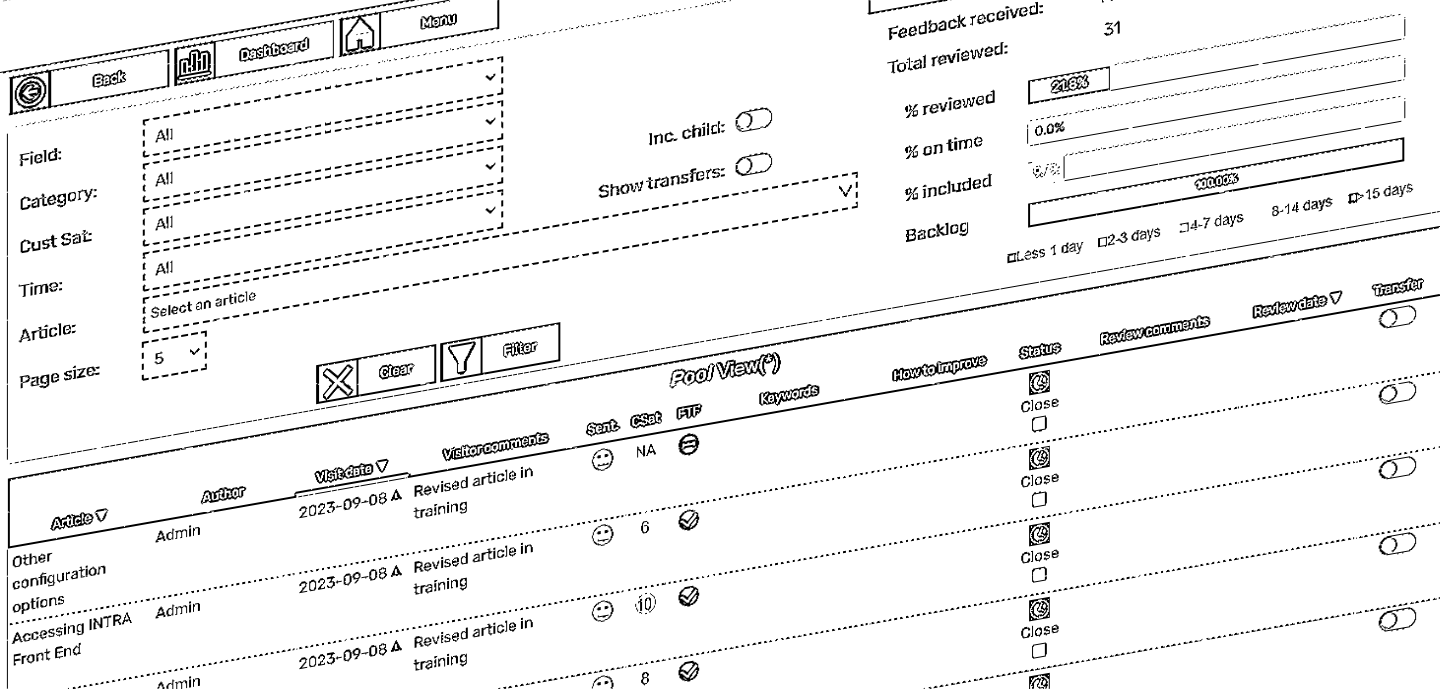Are all Customer Service queries (Pre-Sales, Sales, and Post-Sales) the same across industries and organizations? Let’s first acknowledge that the general requirements for Customer Service are:

- Staff with extensive product and process knowledge
- Customer-oriented processes and policies
- Waiting time (including abandon rate and other operational KPIs)
- Empathy (among other soft skills)
- Strong leadership from agents to guide customers to the desired solution.
Let’s now try to answer the next question: are those requirements’ expected level of delivery similar across all industries?
- The initial answer that comes to mind is that different products/services may require different levels of delivery. However, it’s not necessarily because the products/services are different, but rather the potential consequences of failing to meet the expected level that differentiate businesses.
For example, having an issue with a delivery address can cause a 24-hour delay in delivering a book, which is frustrating for the client. However, a wrong address entry can have severe consequences for an emergency ambulance.
- Another factor is the organization’s setup, which means that the ways processes, policies, and product/service knowledge are generated and shared depend on the overall business organization.
For instance, if all business activities are in-house and located in a single location, the workflow for sourcing, authoring, and sharing key information (knowledge) will be completely different compared to an organization with multiple sites and a mix of in-house and outsourced service operations.
- The level of compliance and legal constraints can also vary greatly depending on the type of service. Certain markets are subject to strict legal rules and are required to provide information within a specific format.
For example, if you’re selling shoes online or if you’re in the bank loan business, your constraints and corporate liabilities are of a very different nature.
- Additionally, some industries have inherently complex processes and must keep track of historical legacy. Keeping track of past policies and long-term procedures requires managing a significant amount of information and knowledge with discipline.
For instance, in the consumer electronics industry, it’s not vital to keep track of the hardware specs of a CD ROM burner a customer purchased 10 years ago, but it is critical for a bank to understand the conditions under which a client was granted a certain mortgage rate 15 years ago.
Now, let’s review what makes Financial Services Customer Support so specific in terms of expectations for Customer Service and what makes Financial Industries (banks, credit providers, insurances, etc.) different in the way they provide information to customers.
At SHA, we worked closely with one of our highly reputed financial institution clients to ensure that our Knowledge Management Solution fits their market-specific quality levels while improving their cost of service and enhancing the staff experience.

So, what is so specific about financial information provision? Based on SHA’s experience, the following points stand out:
- Massive volume of information from different data sources and formats. Financial processes often include legacy documentation as well as recently edited documents from legal, financial, commercial, and marketing departments.
- Long and complex processes and procedures. This requires special techniques, such as tree-decision flows, to improve communication and interactions with customers. It’s not feasible for Customer Service staff to absorb all the details of each procedure.
- Bidding procedures with legal exposure most of the time. Providing inaccurate information can lead to major image and financial risks. If Customer Service is outsourced to a BPO, the content must be validated by in-house experts as critical responsibilities cannot be delegated.
- Customer experience affected by being “easy to do business with.” It’s a known fact that Customer Service staff can explain things better and faster when information is presented in a friendly manner.
- Difficulty in training and retaining knowledge by users. With volatile product specifications and policy changes, it’s challenging to keep up with knowledge even on basic questions like exchange rates and interest rates.
- Addressing 100% of the questions is crucial. Unlike other businesses, even a non-frequently asked question deserves the same attention as the top 10 queries. Public AI knowledge tools cannot be considered safe enough to retrieve critical information.

SHA-SAAS also brings our Customer Expertise to the solution, providing the following areas of opportunities:
- Single system to control all processes and procedures. All inputs from legal, marketing, sales, finance, etc. are consolidated into one system with a simple and highly efficient search tool.
- Quality control and distribution control. Agent and client experience feedback is used to identify the most difficult-to-understand processes, allowing authors to rework and improve them.
- Change management. Knowledge must be dynamic, and ways of providing knowledge require continuous improvement plans for both the knowledge itself and its users.
- Creation of formal/approved documentation/standard operation procedures. Thorough approval processes ensure compliance with Financial Institution governance rules, accommodating both simple and complex operation setups.
- Integrated training control and planning features. The knowledge is critical, but the usage of knowledge by Customer Service staff is even more important. Advanced training modules, individual customized training programs, and individual knowledge performance monitoring are integrated into the Knowledge Management System.
- Gap analysis and suggestions for improvement. Our in-house AI-based Knowledge Management Quality tools enable the detection of low signals of quality drifts in the content and suggest improvements.
SHA clients have enjoyed the following benefits using our Knowledge Management System:
- Major reduction of paperwork. Not only eliminating “paper” based knowledge, but also reducing and optimizing process flows in a one-stop-knowledge shop.
- Reinforcement and streamlining of approval processes. Alignment of approval processes with Corporate Governance Guidelines, providing a transparent, fast, and thorough workflow for authoring knowledge.
- Reduction of “in class” training needs. Reduced training duration for new staff and update training, leading to higher productivity per head and better synchronicity with new products and policy announcements.
- Improvement in troubleshooting accuracy and reduction in invested time. Better information provided to Customer Service teams leads to better productivity.
- Improvement of Customer Experience and Staff Experience. Accurate, up-to-date information provision and efficient guidance result in an improved experience for both customers and staff.
| Generic Requirements | SHA Features & Benefits | Financial Services CS Fit |
| Staff with top product and process knowledge: | Core Knowledge Management with integrated Training Feature | supports multi-format information and ensures freshness of data used by Customer Service teams. It is a perfect fit for in-house core validation governance with remote BPO operations. |
| Customer-oriented processes & Customer-friendly policies: | Integrated Customer Service staff feedback on the Knowledge Management System and SHA coaching module enable continuous staff improvements. | Clear explanations are essential for complex financial processes. |
| Waiting time | Reduced call duration with easy-to-find accurate information improves operational efficiency, | Crucial for cost-efficient financial operations |
| Empathy (within other soft skills): | Well-trained Customer Service staff provided with clear support information can focus on customer satisfaction and improve retention and acquisition. | Customer satisfaction has become a strong differentiator as financial services customers are becoming more volatile with the growth of online banking and insurance offerings. |
| Agent strong leadership to guide customers to the expected solution or offering: | Staff training and education focus shifts to call flow management rather than pure hard knowledge. Individual and team training track monitoring reinforces the quality of interactions with clients and prospects, leading to cost reduction and revenue growth through | First-time resolution for support and conversion rate, up and cross sales for commercial interactions. |
In conclusion, while Financial Services requires the basic Customer Service requirements to be fulfilled, there are additional elements that must be considered and addressed. SHA’s Knowledge Management System delivers these elements in a practical and cost-effective manner.
And if SHA excels in delivering the most demanding expectations, it is also a great fit for all other markets with different levels of expected performance.
SHA is a Knowledge Management System designed and developed by experienced seasoned Customer Service experts who have brought their vision and daily operational experience to deliver a system that enhances Customer Experience, improves Staff Experience, and reduces the cost of service!
For more information on how SHA can support your Customer Service Operations get in touch with us:

